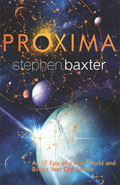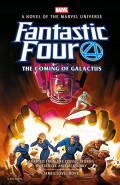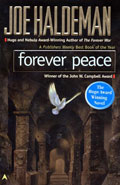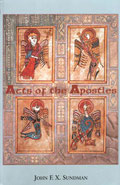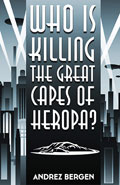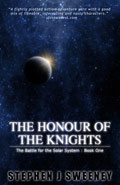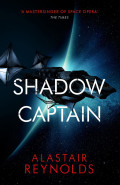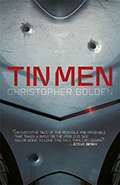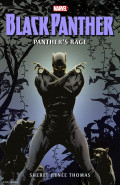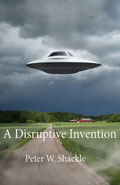The Medusa Chronicles
By Alastair Reynolds
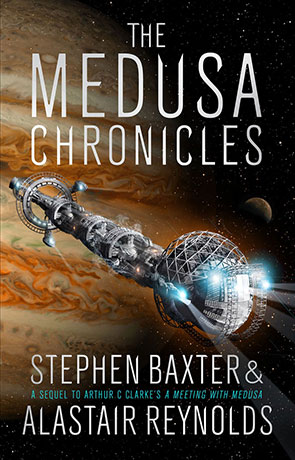
- The Medusa Chronicles
-
Author: Alastair Reynolds
-
Publisher: Gollancz
- ISBN: 978-1473210189
- Published: May 2016
- Pages: 336
- Format reviewed: Hardback
- Review date: 15/06/2016
- Language: English
A collaboration between Science Fiction greats, Stephen Baxter and Alastair Reynolds, The Medusa Chronicles picks up the story of Arthur C. Clarke's A Meeting with Medusa a Nebula Award winning novella published in Playboy in 1971. It takes the story of Howard Falcon, from his shattered aftermath into a new era of humanity, where artificial intelligence, sentient primates and further discoveries of alien indigenous life on Jupiter gradually shape the ideologies of human society over the next thousand years.
Baxter and Reynolds make use of Falcon and the lumbering Jovian cloud dwelling Medusae of Clarke's story to develop this century spanning narrative. Falcon's status, unique perspective and physiology as a repaired human, contained within a changing machine body provides a viewpoint that sits alongside others, occasionally in alliance with humans, or machines, or aliens, but always with his own position on the developing political events.
But Falcon is not just an observer. His actions lead to the crises faced across the solar system. These validate the title of the work. This is truly a set of chronicles, as each crucial moment is encapsulated in a mini-book of its own. Falcon understands his role and guilt in this circumstance and this guilt works to shape and change his character over the centuries of his life. The relationships that he clings to and memories of his extended past are selectively used by the authors to motivate his further actions.
Baxter and Reynolds manage to weave in a snapshot of incredible solar system locations. Falcon's Mars invokes images of Kim Stanley Robinson's incredible trilogy, you can almost see the footprints of Frank Chalmers and the other Red Mars explorers. Additionally, the scenes in the outer regions of the solar system feel like they might be straight from a seventies science fiction magazine.
However, it is in joining all these elements together that The Medusa Chronicles shows it's worth. This is classic science fiction in its wrapping, but very modern in relating the complicated consequences. We reach the final crises with little hope of a resolution between the machines and the harsh dictatorship that rules humanity in this war torn future.
Throughout the story, Falcon's understanding of his extended life and rumination on becoming world weary with such matters over the centuries offers a differentiated perspective to our own condition. What would you give to see the wonders of humanity's far future as colonies are established across the different planets of our star system? But also, what would it be to witness such things when you also had memories of Earth before its adventures into space colonisation?
The perceived antagonist of the piece is the machine intelligence, Adam. We first meet him as a troubled friend and throughout the story, Adam alternates from invoking the spectre of HAL 9000, to being a protective and advisory presence, much like Asimov’s Giskard or Daneel Olivaw. Amidst this juxtaposition, there is a Matrix quality about Adam’s people – the machines. From one perspective they appear to be a singular mind, with singular purpose, but we learn things are not as simple for them as they appear to be.
Eventually, Baxter and Reynolds resolve the story by invoking themes from Clarke's other classic work. Howard Falcon's final ride into the heart of Jupiter with the artificial intelligence, Adam, is comparable Bowman's journey to the Obelisk in 2001: An Space Odyssey, and the subsequent resolutions of novels as Clarke continued that series. This final ride has some of the same strengths and weaknesses. We have the same sense of wonder and discovery invoked this time by the vivid and speculative description of what might exist in the heart of our solar system's greatest gas giant. In a sense, this is a speculation on an inaccessible inner space that we will never likely know as intimately during our lives.
However, the weakness of this ending comes in its resolution of the established politics. Our new discoveries empower a truce through playing bigger cards than everyone else, which feels convenient to the reader. This is something that Clarke did, but has less resonance in today's complex political landscape. Baxter and Reynolds seem to understand this and try not to tie up every element of the crisis, but the wish fulfilment of Falcon at the end is a similar transition state into higher power and intelligence that we have seen before and since
The Medusa Chronicles is an excellent read, continuing where Clarke left its principle character and expanding his ideas in a way that pays homage but also expresses the gift of the two writers who have chosen to take their pens to this future fiction world.
Written on 15th June 2016 by Allen Stroud .
